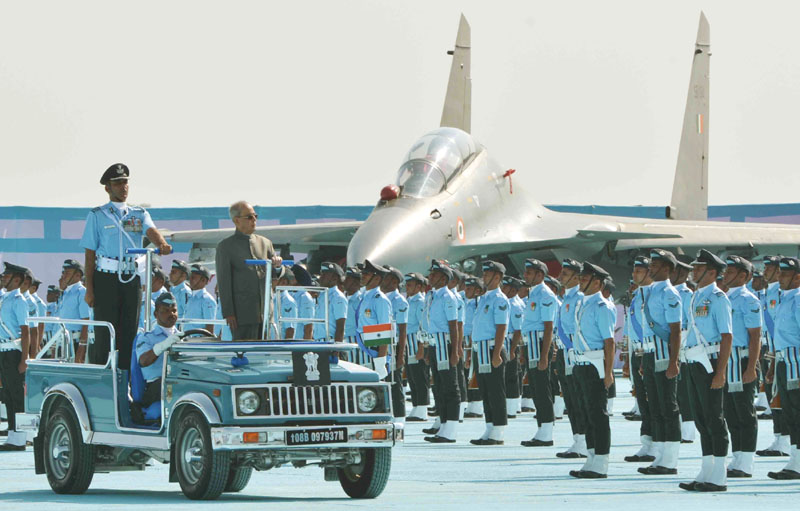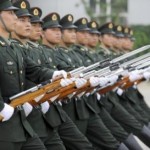
Defence is the first charge of a nation’s budget, as it protects a nation’s sovereignty. Sardar Baldev Singh was India’s first Defence Minister. There have been 26 Defence Ministers so far. Mrs. Indira Gandhi and Rajiv Gandhi also held the charge of Defence Ministry as Prime Minister. The Bofors scandal happened under Rajiv’s charge. I had the privilege of working with four Defence Ministers, beginning with Sri Mulayam Singh Yadav (1996-98), Sri George Fernandes (1998-2004), Dr. Pranab Mukherjee (2004-06) and Sri A. K. Antony (2006-2014). Each of these Raksha Mantri had a unique style of functioning. Mulayam shuttled between Lacknow and Delhi in IAF planes, and wanted all notings in Hindi and called Major Generals as Majors! George Fernandes brought in enormous dynamism to the stiff collar Defence Ministry, with his informality and easy accessibility. He was the most popular defence minister as he carried cakes to troops during Christmas and also sent defence financial officials to Siachen Glacier, as they were sitting over proposals for snow boots for the troops.
Mr. Antony was the longest serving Defence Minister (8 years), who gave priority to his personal image over expeditious procurement of weapon systems. He cancelled every contract where he smelt minimal malfeasance; leading to a stalemate in major procurement. Fernandes’ easy access led to the Tehelka tapes, exposing the sleazy way that surrogate defence agents operate with MoD officials.
Between the ‘irrational exuberance’ of Fernandes and virtuousness of Antony, Dr. Pranab Mukherjee was like a whiff of fresh air to the South Block, when he came in 2004. Sri N. Vittal, who was the Central Vigilance Commissioner, met him and harped on the need to usher in transparency in procurement process of defence deals. This showed the seeds of Defene Procurement Manual 2005 which coincided with my baptism into the MoD as a Financial Advisor and the Chairperson to complete this document.
Dr. Pranab Mukherjee ensured that a Defence Procurement Manual for revenue items and a Defence Procurement Procedure for long term capital acquisition of weapon systems and platforms are put in place by August, 2005. There was a debate in the Defence Ministry whether such a manual should have restricted use in the ministry, or be put as part of the MoD website. Dr. Mukherjee overruled all the defence mandarins and ensured that MoD, India is a perceived as a transparent defence buyer globally.
I recall how he unveiled the Defence Procurement Manual before a galaxy of journalists and the press, which wanted to corner Dr. Mukherjee about the possible gaps between MoD’s percept and practice. I was standing in the sidelines when he beckoned me to come up the stage and whispered: I will answer the essentials; you handle the details. With Pranab, one need not have to chip in. He disarmed all with his wit, courtesy and yen for details. But for a middle level officer, his gesture will remain a gesture, always to cherish.
Dr. Mukherjee also put in place a new procedure called the ‘Offset Procedure’ in 2005, as per which when a country goes for big ticket acquisition, it can ask the exporting country to transfer key technology, bring in FDI and bolster exports as an ‘offset’. When this procedure was unveiled, the global companies welcomed the move as a very pioneering effort on the part of MoD to bring in best global practice. The example how Brazil built its Embraer aircraft, by getting technology from the USA, while buying F-16 aircrafts, set the template for India.
The other very important provision that was incorporated in Defence Procurement Procedure in 2006 was the Integrity Pact. Admiral Tahiliani (Retd. CNS) who was President of Transparency International, India chapter brought to the notice of Dr. Mukherjee, how India ranks very high in the corruption index. As per the IP Pact, which is widely practiced globally, the purchaser and the buyer sign a commitment of ‘no corruption’. Normally such a commitment is given only by the seller and not by the buyer. We also included the ‘Undue Influence clause’, through which defence contracts can be cancelled if defence agents try to resort to venal methods to gain contracts. It is to the credit of Dr. Mukherjee that the Defence Ministry became the pioneer of having an Integrity Pact, which was adopted subsequently by the ONGC and the Power Sector. Dr. Mukherjee ensured that exigency of defence procurement does not cloud fair process, equal opportunity and criteria based short listing and evaluation of vendors. This has been his most enduring contribution in his three years stay in the defence ministry, before he left for the MEA in 2006, rather reluctantly.
I have an interest memory of him when we had gone to attend the Golden Jubilee Celebration of HMI at Darjeeling in 2006, and were stranded on the Lebong airstrip (2006), because of an inclement weather. He was in expansive mood. While sipping tea served by an army jawan from the nearby army detachment, he said: I was once stranded along with Mrs. Gandhi in 1973 in a similar manner when Sanjay Gandhi was part of the entourage. He recounted how Sanjay was playing pranks with the jawans and Mrs. Gandhi was constantly trying to dissuade him from being naughty. Pranab told her “Madam, let him play; this is his age to play and have fun”. When I reminded Dr. Mukherjee of the major pranks that Sanjay had played on people’s personal lives of people during emergency; he got into a reflective mood and said: Mrs. Gandhi told me that after she lost the election in 1977 that almost everyone had left her. Mrs. G. Was a hero to him.
Dr. Mukherjee has written in his Memoirs how Mrs. Gandhi was not aware about the nuances of the Emergency provisions. He has also recounted how Sri P.V. Narasimha Rao, admonished him for leaving Congress hurriedly and forming an alternative party because of his differences with Rajiv. That’s the reason why most Congress men do not consider him loyal enough! In his last memoirs, he has written how Sonia Gandhi expected him to be deferential towards her, after he became the President.
Many Congressmen berated him for going to RSS headquarters for addressing them. Pranab possibly believes that freedom of speech and expression, and eschewing untouchability are his fundamental right. It was not the best decision possibly, but he understood the basic structure of the Constitution, better than others. His legacy in inking a transparent procurement process, a new offset procedure and Integrity Pact, makes him a cut above the rest as a Defence Minister, and a just recipient of the honour of Bharat Ratna!




